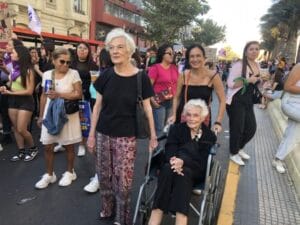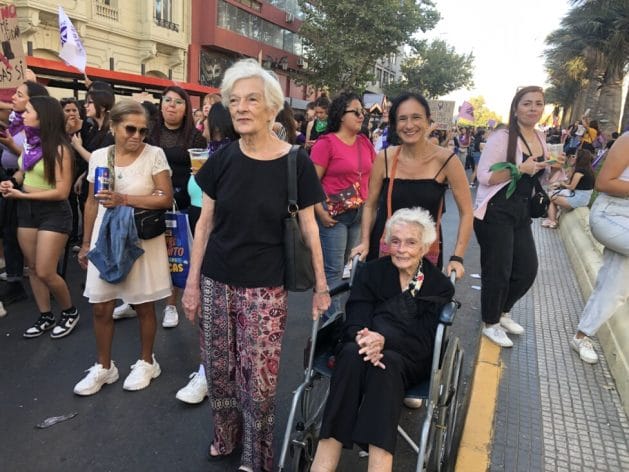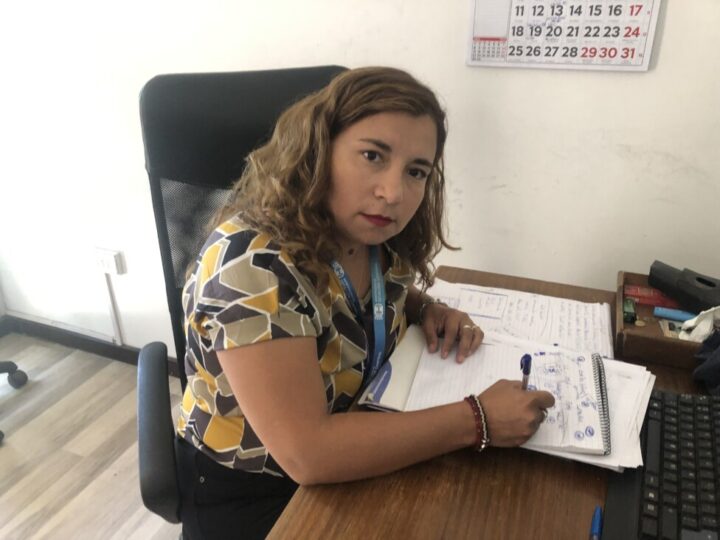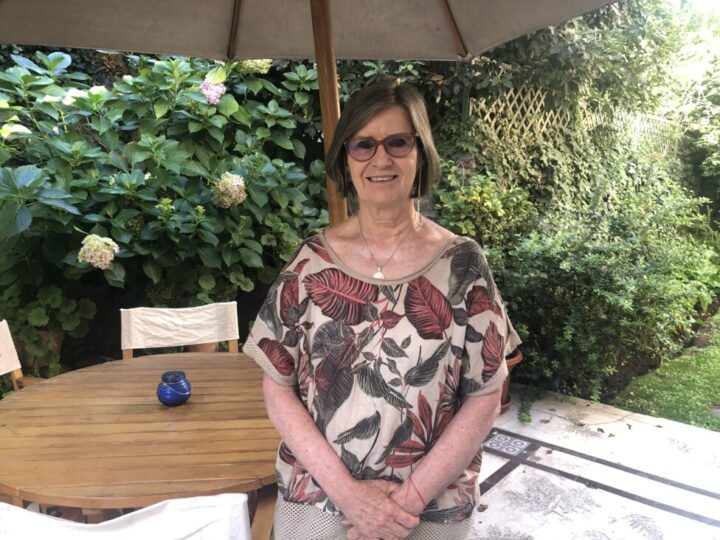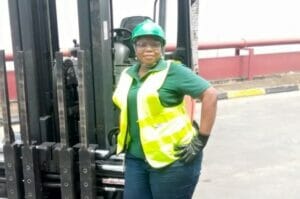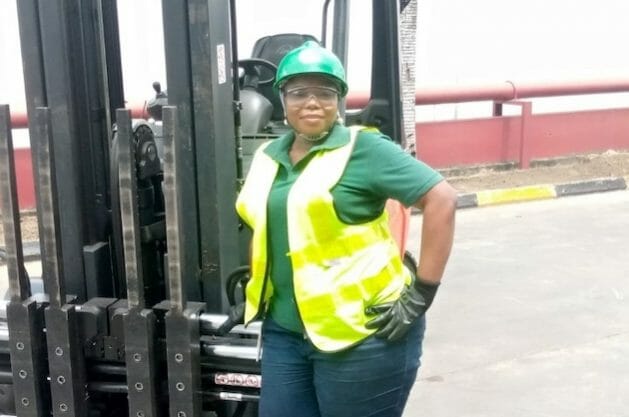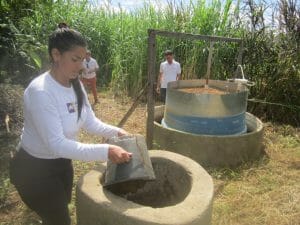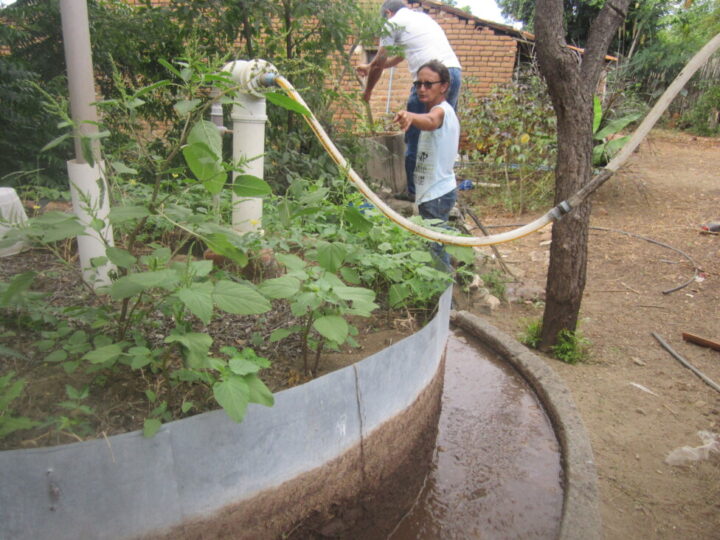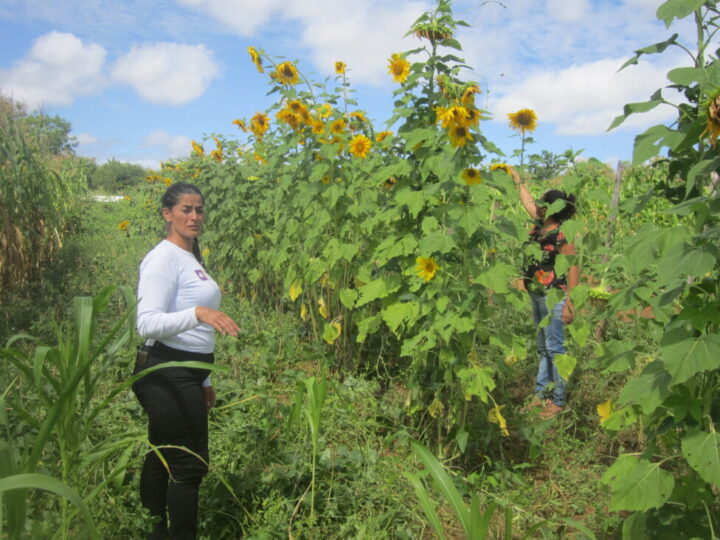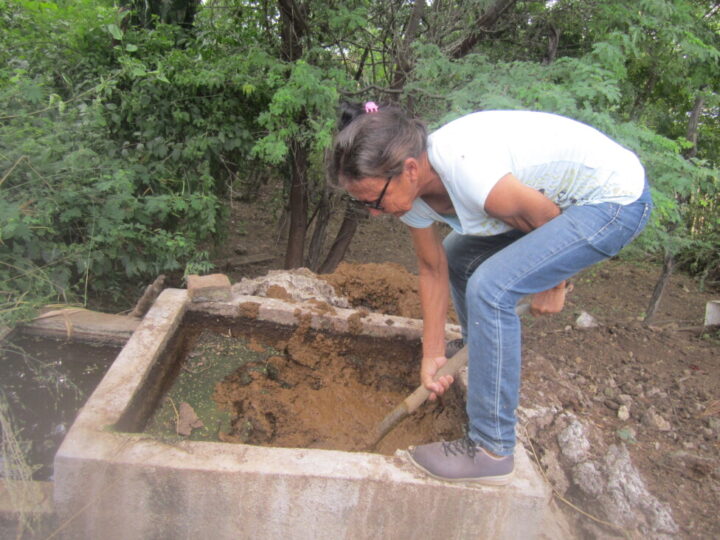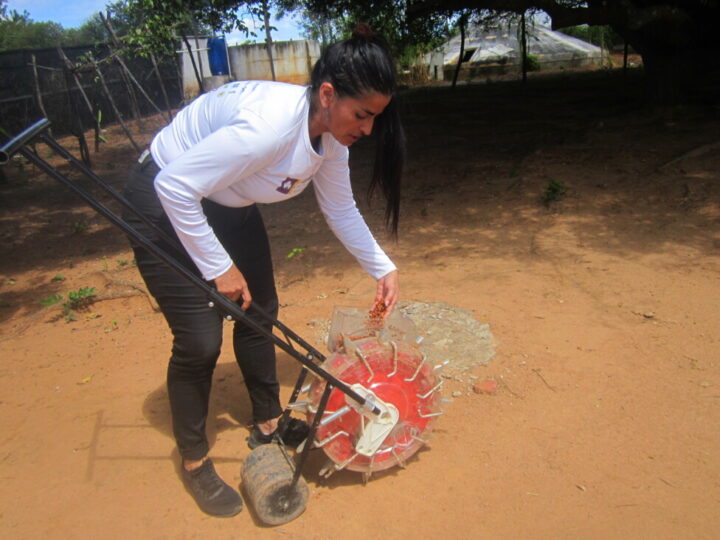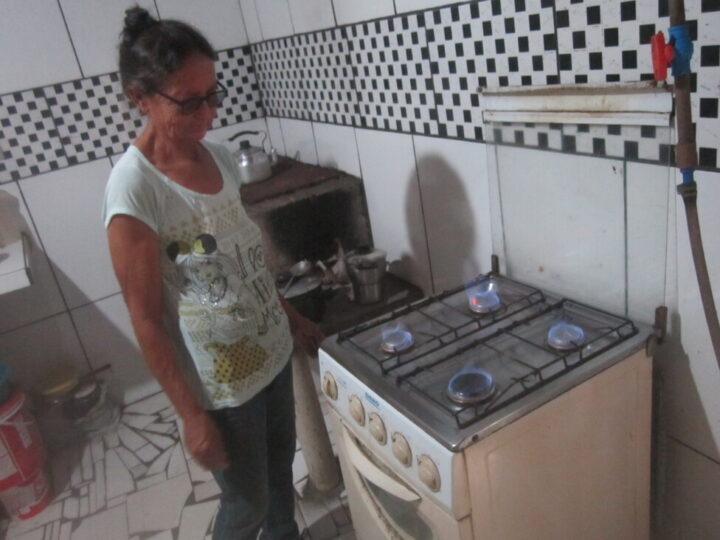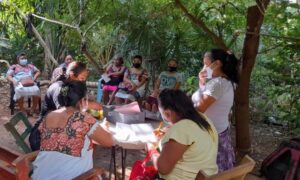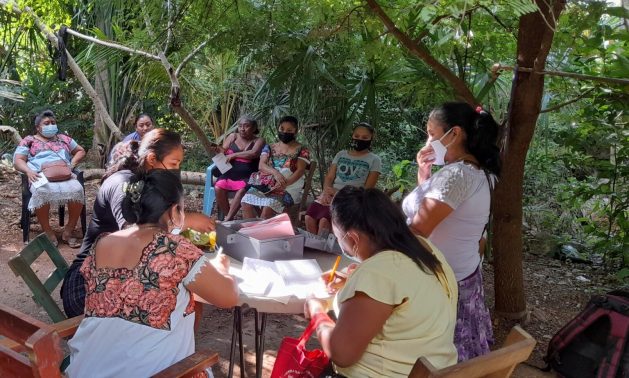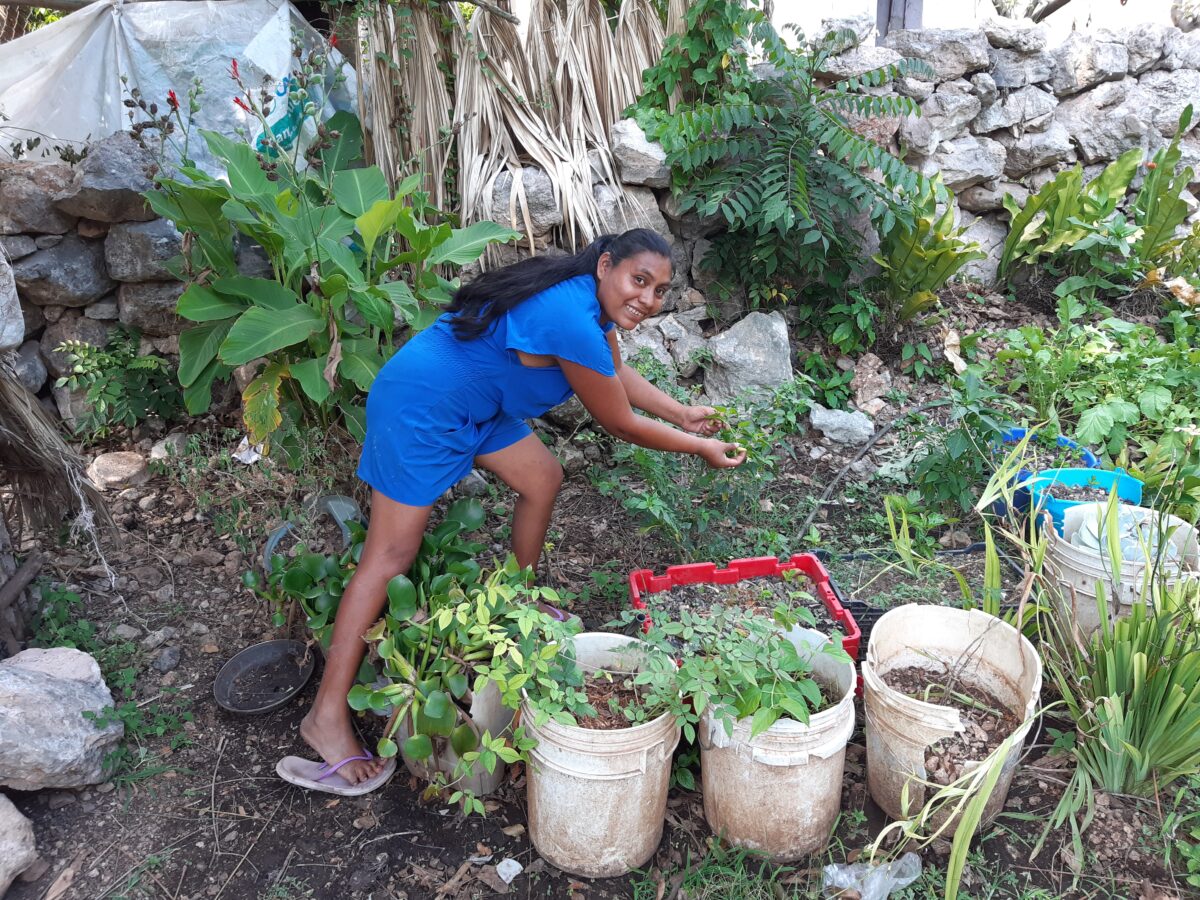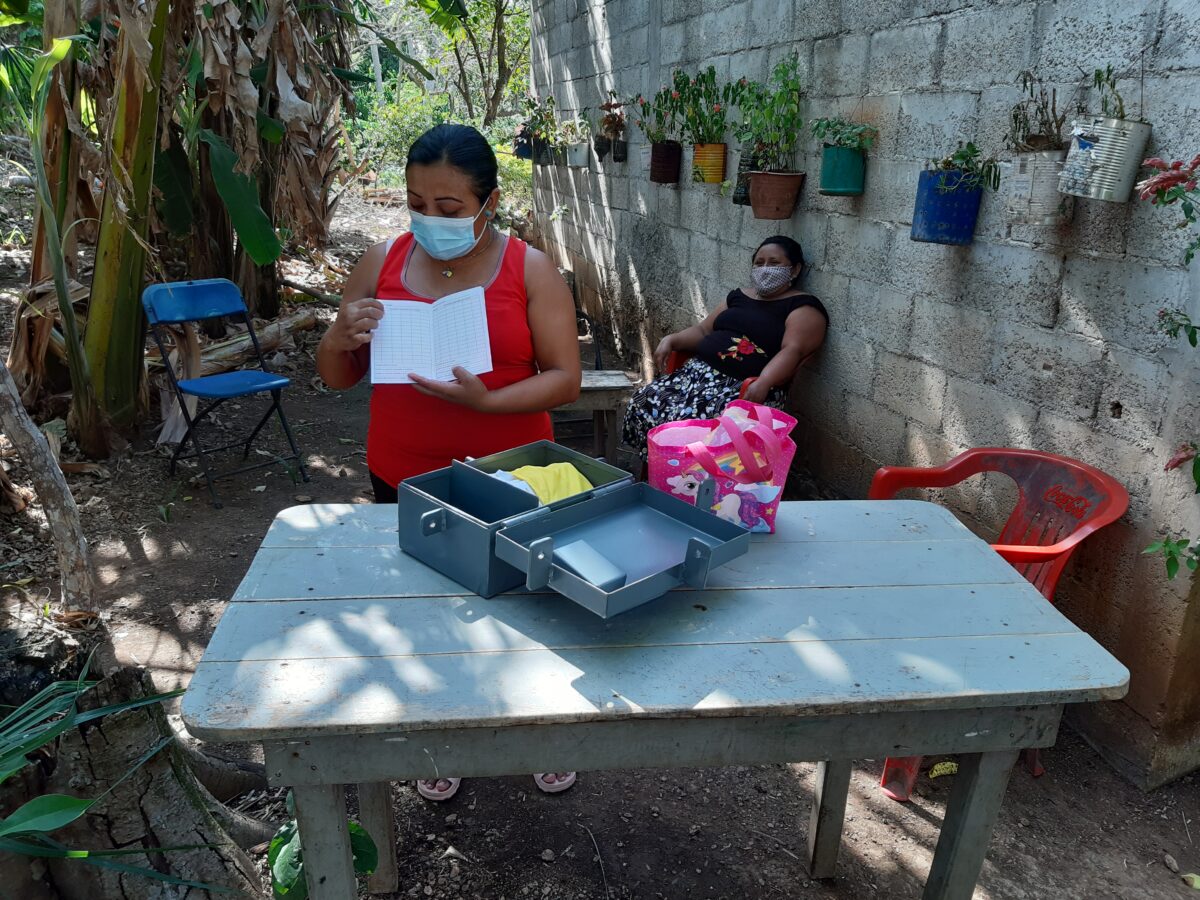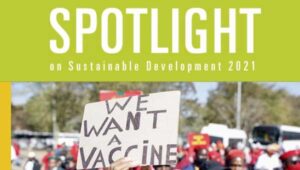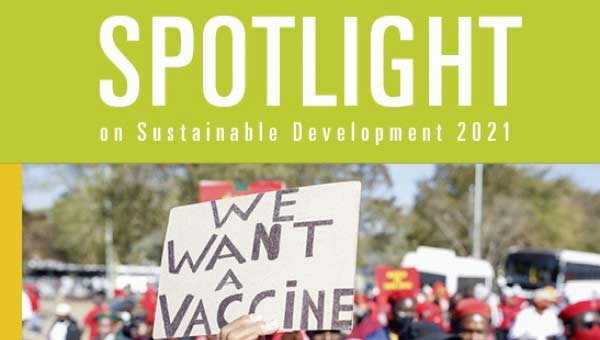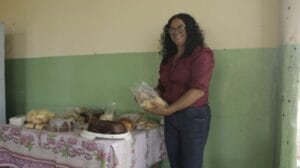
Active Citizens, Biodiversity, Civil Society, Cooperatives, Development & Aid, Economy & Trade, Editors’ Choice, Energy, Environment, Featured, Food and Agriculture, Gender, Headlines, Integration and Development Brazilian-style, Latin America & the Caribbean, Projects, Regional Categories, TerraViva United Nations, Women & Climate Change, Women & Economy
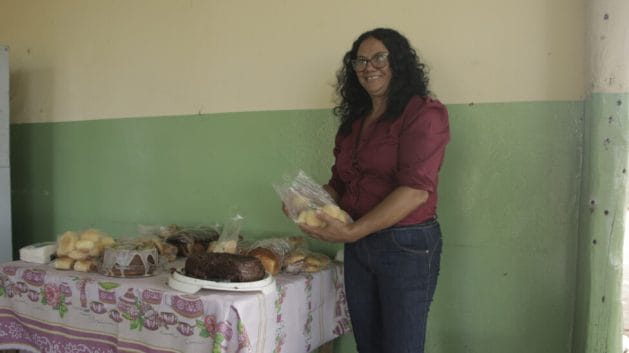
Leide Aparecida Souza, president of the Association of Residents of the Genipapo Settlement in the rural area of Acreúna, a municipality in central-western Brazil, stands next to breads and pastries from the bakery where 14 rural women work. The women’s empowerment and self-esteem have been boosted by the fact that they earn their own income, which is more stable than from farming, and provide an important service to their community. CREDIT: Marina Carolina / IPS
– A bakery, fruit pulp processing and water pumped from springs are empowering women farmers in Goiás, a central-eastern state of Brazil. New renewable energy sources are driving the process.
“We work in the shade and have a secure, stable income, not an unsteady one like in farming. We cannot control the price of milk, nor droughts or pests in the crops,” said Leide Aparecida Souza, who runs a bakery in the rural area of Acreúna, a municipality of 21,500 inhabitants in central Goiás.
“The Network is the link between the valorization of rural women, family farming and the energy transition. We chose family farmers because they are the ones who produce healthy food.” — Jessyane Ribeiro
The bakery supplies a variety of breads, including cheese buns and hot dog buns, as well as pastries, cakes and biscuits to some 3,000 students in the municipality’s school network, for the government’s school feeding program, which provides family farming with at least 30 percent of its purchases. Welfare institutions are also customers.
The bakery is an initiative of the women of the Genipapo Settlement, established in 1999 by 27 families, as part of the agrarian reform program implemented in Brazil after the 1964-1985 military dictatorship, which has so far settled 1.3 million families on land of their own.
Genipapo, the name chosen for the settlement, is a fruit of the Cerrado, the savannah that dominates a large central area of Brazil. Each settled family received 44 hectares of land and local production is concentrated on soybeans, cassava and its flour, corn, dairy cattle and poultry.
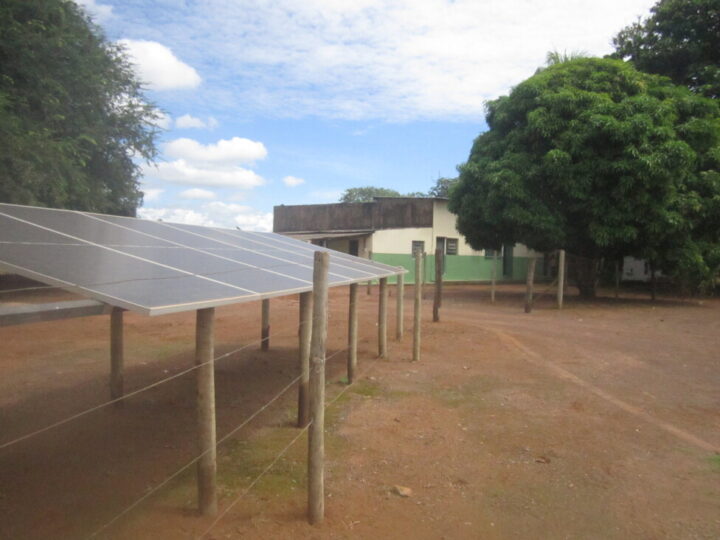
Six solar panels will reduce the costs of the women’s bakery, installed on the former estate where 27 families were given land in Acreúna, in the Brazilian state of Goiás, as part of the country’s ongoing agrarian reform program. CREDIT: Mario Osava / IPS
Bakery empowers rural women
The women of the Association of Residents of the Genipapo Settlement decided to create a bakery as a new source of income 16 years ago. They also gained self-esteem and autonomy by earning their own money. In general, agricultural and livestock income is controlled by the husbands.
Each of the women working at the bakery earns about 1,500 reais (300 dollars) a month, six percent more than the national minimum wage. “We started with 21 participants, now we have 14 available for work, because some moved or quit,” Souza said.
A year ago, the project obtained a solar energy system with six photovoltaic panels from the Women of the Earth Energy project, promoted by the Gepaaf Rural Consultancy, with support from the Socio-environmental Fund of the Caixa Econômica Federal, the regional bank focused on social questions, and the public Federal University of Goiás (UFG).
Gepaaf is the acronym for Management and Project Development in Family Farming Consultancy and its origin is a study group at the UFG. The company is headquartered in Inhumas, a city of 52,000 people, 180 km from Acreúna.
Due to difficulties with the inverter, a device needed to connect the generator to the electricity distribution network, the plant only began operating in March. Now they will see if the savings will suffice to cover the approximately 300 reais (60 dollars) that the bakery’s electricity costs.
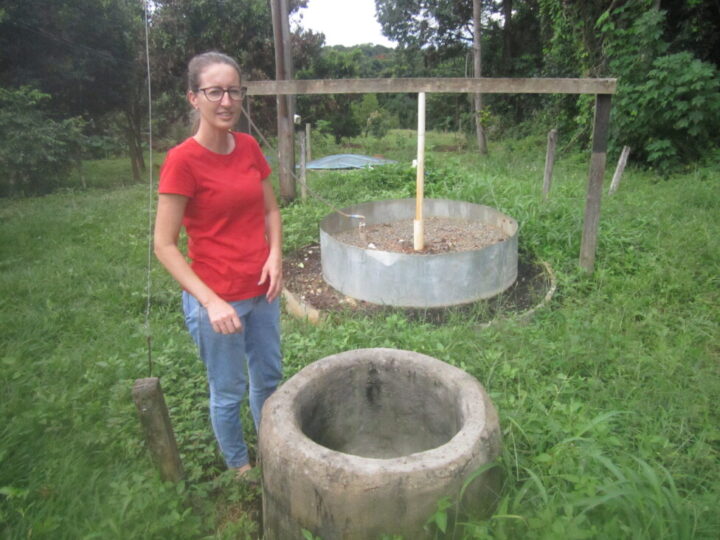
Iná de Cubas stands next to the biodigester that she got from the Women of the Earth Energy project in the municipality of Orizona, in the center-east of the Brazilian state of Goiás. The biogas generated benefits the productive activities of small farmers in rural settlements, as do solar plants on a family or community scale. Image: Mario Osava / IPS
“It’s not that much money, but for us every penny counts,” Souza said. Electricity is cheap in their case because it is rural and nocturnal consumption. Bread production starts at 5:00 p.m. and ends at 3:00 or 4:00 a.m. from Monday to Thursday, according to Maristela Vieira de Sousa, the group’s secretary.
The industrial oven they use is low-consumption and wood-burning. There is another, gas-fired oven, which is only used in emergencies, “because it is expensive,” said de Sousa. Biogas is a possibility for the future, which would use the settlement’s abundant agricultural waste products.
Alternative energies make agribusiness viable
Iná de Cubas, another beneficiary of the Women of the Earth Energy project, has a biodigester that supplies her stove, in addition to eight solar panels. They generate the energy to produce fruit pulp that also supplies the schools of Orizona, a municipality of 16,000 inhabitants in central-eastern Goiás.
The solar plant, installed two years ago, made the business viable by eliminating the electricity bill, which was high because the two refrigerators needed to store fruit and pulp consume a lot of electricity.
The abundance of fruit residues provides the inputs for biogas production, an innovation in a region where manure is more commonly used.
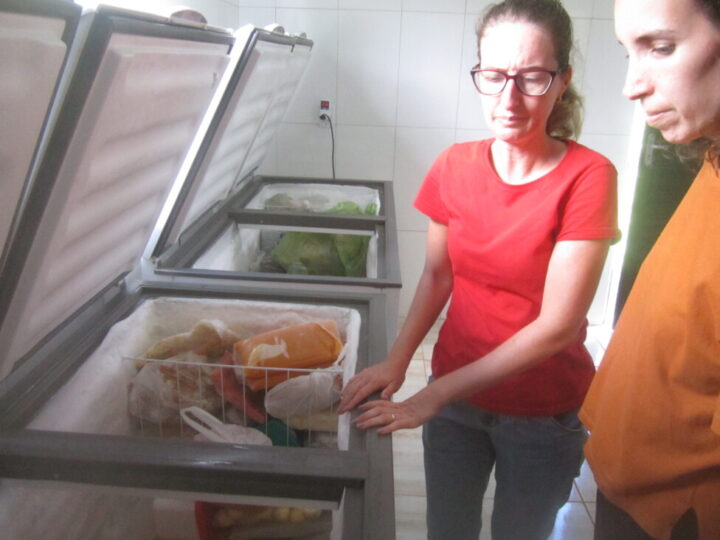
The refrigerators in which Iná de Cubas keeps the fruit and fruit pulp that she prepares for sale to schools in Orizona in central Brazil consume a great deal of electricity. CREDIT: Mario Osava / IPS
“I only use an additional load of animal feces when I need more biogas,” said Cubas, who gets the manure from her neighbor’s cows, since she does not raise livestock.
On her five hectares of land, Cubas produces numerous species of fruit for her cottage industry.
In addition to typical Brazilian fruits, such as cajá or hog plum (Spondias mombin), pequi or souari nut (Caryocar brasiliense) and jabuticaba from the grapetree (Plinia cauliflora), she grows lemons, mangoes, oranges, guava and avocado, among others.
For the pulp, she also uses fruit from neighbors, mostly relatives. The distribution of her products is done through the Agroecological Association of the State of Goias (Aesagro), which groups 53 families from Orizona and surrounding areas.
Agroecology is the system used on her farm, where the family also grows rice, beans and garlic. The crops are irrigated with water pumped from nearby springs that were recovered by the diversion of a road and by fences to block access by cattle, which used to trample the banks.
“The overall aim is to strengthen family farming, the quality of life in the countryside, incomes, and care for the environment, and to offer healthy food, without poisonous chemicals, especially for schools,” explained Iná de Cubas.
Biodigesters made of steel and cement, solar energy for different purposes, including pumping water, rainwater collection and harvesting, are part of the “technologies” that the Women of the Earth Energy project is trying to disseminate, said Gessyane Ribeiro, Gepaaf’s administrator.
In the area where Iná de Cubas lives, the project installed five biodigesters and seven solar pumps for farming families, in addition to solar plants in schools, she said.
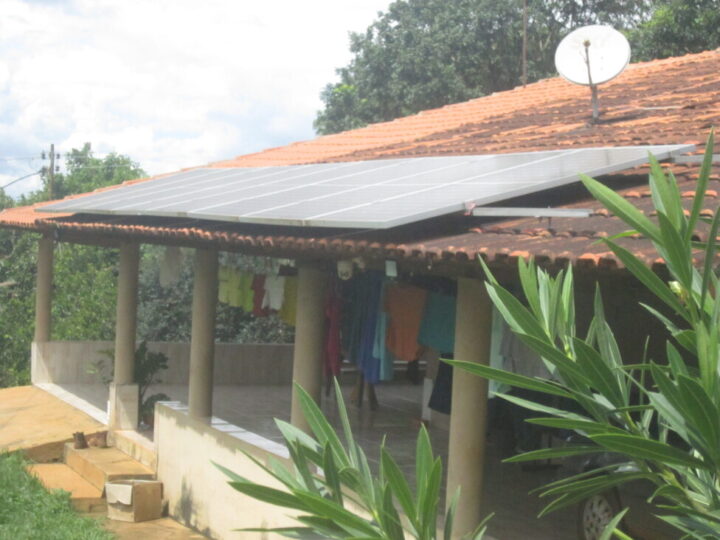
The eight solar panels on the roof of the Cubas family’s house, in the rural area of Orizona, make small agro-industrial processes viable, adding value to the wide diversity of native fruits from different Brazilian ecosystems, such as the Cerrado savannah and the Amazon rainforest, along with species imported throughout the country’s history. CREDIT: Mario Osava / IPS
Network of rural women
The Women of the Earth Energy Network, brought together by the project and coordinated by Ribeiro, operates in six areas defined by the government based on environmental, economic, social and cultural similarities. In all, it involves 42 organizations in 27 municipalities in Goiás.
The local councils choose the beneficiaries of the projects, all implemented with collective work and focused on women’s productive activities and the preservation of the Cerrado. All the beneficiaries commit themselves to contribute to a solidarity fund to finance new projects, explained agronomist Ribeiro.
“The Network is the link between the valorization of rural women, family farming and the energy transition,” she said. “We chose family farmers because they are the ones who produce healthy food.”
“We offer technological solutions that rely on the links between food, water and energy, to move towards an energy transition that can actually address climate change,” said sociologist Agnes Santos, a researcher and communicator for the Network.
Recovering and protecting springs is another of the Women’s Network’s activities.
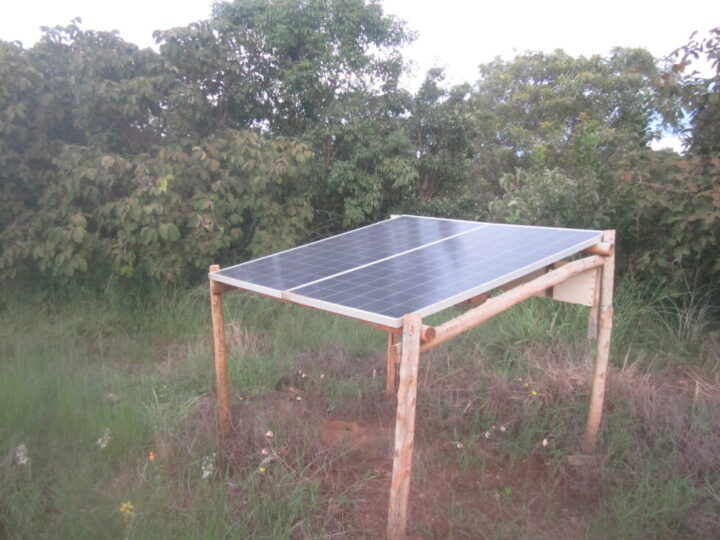
Two solar panels run a pump installed in a spring in the forest to pump the water needed by the 29 cows owned by Nubia Lacerda Matias’ family in Orizona, in the state of Goiás, near Brasilia. Thus the cows stopped drinking water in the springs, which are now fenced off, vital to protect the water source for local families living downstream. CREDIT: Mario Osava / IPS
Nubia Lacerda Matias celebrates the moment she was invited to join the movement. She won a solar pump, made up of two solar panels and pipes, which bring water to her cattle that used to damage the spring, now protected by a fence and a small forest.
“It’s important not only for my family, but for the people living downhill” where a stream flows, fed by various springs along the way, she said.
But the milk from the 29 cows and corn crops on her 9.4-hectare farm are not enough to support the family with two young children. Her husband, Wanderley dos Anjos, works as a school bus driver.
Iná de Cubas’ partner, Rosalino Lopes, also works as a technician for the Pastoral Land Commission, a Catholic organization dedicated to rural workers.
In his spare time, Lopes invents agricultural machines. He assembles and combines parts of motorcycles, tractors and other tools, in an effort to fill a gap in small agriculture, undervalued by the mechanical industry and scientific research in Brazil.

